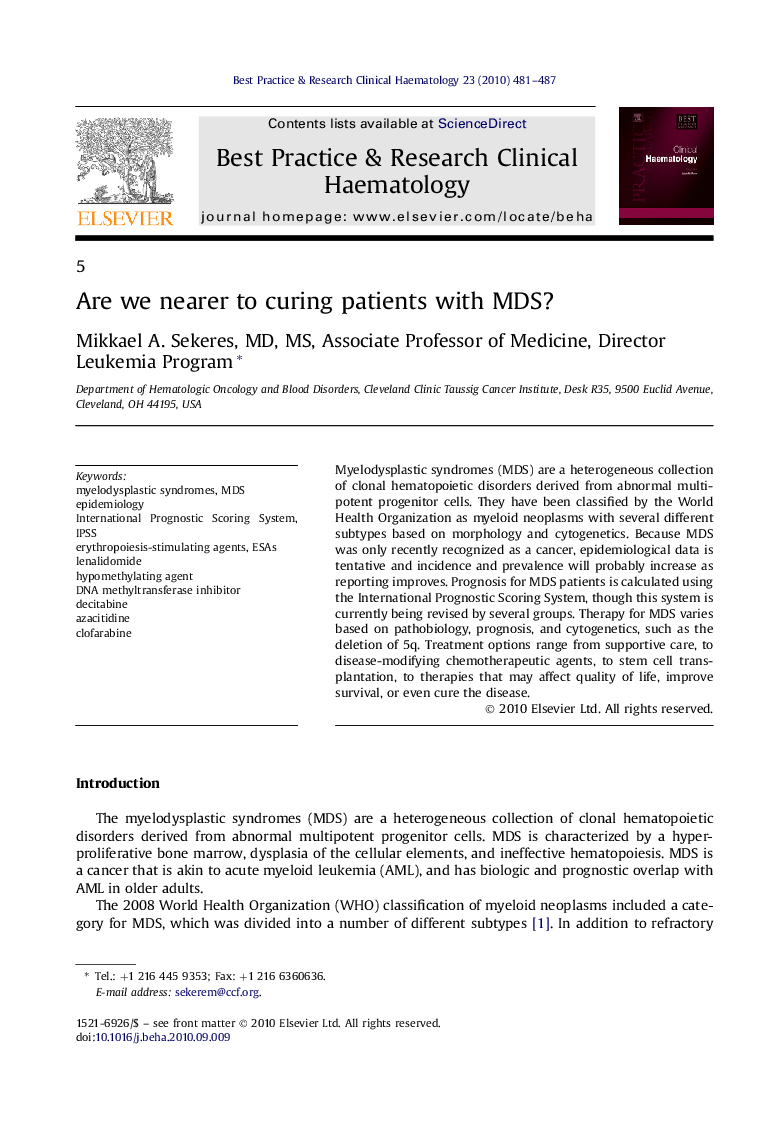| Article ID | Journal | Published Year | Pages | File Type |
|---|---|---|---|---|
| 2100485 | Best Practice & Research Clinical Haematology | 2010 | 7 Pages |
Abstract
Myelodysplastic syndromes (MDS) are a heterogeneous collection of clonal hematopoietic disorders derived from abnormal multipotent progenitor cells. They have been classified by the World Health Organization as myeloid neoplasms with several different subtypes based on morphology and cytogenetics. Because MDS was only recently recognized as a cancer, epidemiological data is tentative and incidence and prevalence will probably increase as reporting improves. Prognosis for MDS patients is calculated using the International Prognostic Scoring System, though this system is currently being revised by several groups. Therapy for MDS varies based on pathobiology, prognosis, and cytogenetics, such as the deletion of 5q. Treatment options range from supportive care, to disease-modifying chemotherapeutic agents, to stem cell transplantation, to therapies that may affect quality of life, improve survival, or even cure the disease.
Keywords
Related Topics
Life Sciences
Biochemistry, Genetics and Molecular Biology
Cancer Research
Authors
Mikkael A. (Associate Professor of Medicine, Director Leukemia Program),
